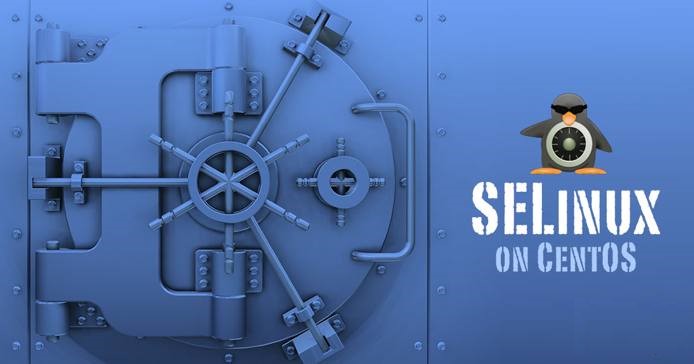Kanboard is a free and open-source project management tool that uses the Kanban methodology. Kanboard focuses on minimalism and simplicity, it is mainly designed for small teams. It also helps you to manage your projects and visualize your workflow.
Here at Ibmi Media, as part of our Server Management Services, we regularly help our Customers to perform related open-source Software Installation queries.
In this context, we shall look into how to install Kanboard on Ubuntu 20.04 LTS.
Steps to Install and configure Kanboard on Ubuntu 20.04 LTS Focal Fossa
1. Perform System Update
First, make sure that all your system packages are up-to-date by running these following apt commands in the terminal:
$ sudo apt update
$ sudo apt upgrade2. Install LAMP stack
Here, you need to have LAMP server on the system. If you do not have LAMP installed, you can follow our guide here.
3. Configure MariaDB for Kanboard
By default, MariaDB is not hardened. You can secure MariaDB using the mysql_secure_installation script. you should read and below each step carefully which will set a root password, remove anonymous users, disallow remote root login, and remove the test database and access to secure MariaDB:
$ mysql_secure_installation
Configure it like this:
- Set root password? [Y/n] y
- Remove anonymous users? [Y/n] y
- Disallow root login remotely? [Y/n] y
- Remove test database and access to it? [Y/n] y
- Reload privilege tables now? [Y/n] yNext, we will need to log in to the MariaDB console and create a database for the Kanboard. Run the following command:
$ mysql -u root -pThis will prompt you for a password, so enter your MariaDB root password and hit Enter. Once you are logged in to your database server you need to create a database for Kanboard installation:
MariaDB [(none)]> CREATE DATABASE kanboarddb;
MariaDB [(none)]> GRANT ALL PRIVILEGES ON kanboarddb.* TO 'kanboarduser'@'localhost' IDENTIFIED BY 'kanboardpasswd';
MariaDB [(none)]> FLUSH PRIVILEGES;
MariaDB [(none)]> Exit;4. Install Composer on the system
Now, We are downloading and installing the Composer https://linuxapt.com/blog/315-install-composer-on-linux-mint with the following commands:
$ curl -sS https://getcomposer.org/installer | phpTo make PHP Composer globally available, move it to the binary folder /usr/local/bin:
$ sudo mv composer.phar /usr/local/bin/composer
$ sudo chmod +x /usr/local/bin/composer
$ source ~/.bashrcFinally, run the following commands if you want to verify the installed composer:
$ composer -v5. Install Kanboard on the system
Now we start downloading and installing Kanboard:
$ cd /tmp
$ git clone https://github.com/kanboard/kanboard.gitOnce complete, move it to the Apache directory. Then, proceed to install it using the following commands:
$ sudo mv kanboard /var/www/kanboard
$ cd /var/www/kanboard
$ sudo mv config.default.php config.php
$ sudo composer installAfter that, you have to modify the Kanboard configuration file to incorporate the MariaDB:
$ sudo nano /var/www/kanboard/config.phpdefine('DB_DRIVER', 'mysql');
define('DB_USERNAME', 'kanboarduser');
define('DB_PASSWORD', 'kanboardpasswd');
define('DB_NAME', 'kanboarddb');Now, change the permission to the Kanboard folder:
$ sudo chown -R www-data:www-data /var/www/kanboard/
$ sudo chmod -R 755 /var/www/kanboard/6. Configure Apache web server for Kanboard
Create a new virtual host directive in Apache. For example, create a new Apache configuration file named 'kanboard.conf' on your virtual server:
$ touch /etc/apache2/sites-available/kanboard.conf
$ ln -s /etc/apache2/sites-available/kanboard.conf /etc/apache2/sites-enabled/kanboard.conf
$ nano /etc/apache2/sites-available/kanboard.confAdd the following lines:
<VirtualHost *:80>
ServerAdmin admin@yourdomain.com
DocumentRoot /var/www/kanboard
ServerName your-domain.com
ServerAlias www.your-domain.com
<Directory /var/www/kanboard/>
Options FollowSymLinks
AllowOverride All
Order allow,deny
allow from all
</Directory>
ErrorLog /var/log/apache2/your-domain.com-error_log
CustomLog /var/log/apache2/your-domain.com-access_log common
</VirtualHost>Now, we can restart the Apache webserver so that the changes take place:
$ sudo a2enmod rewrite
$ sudo a2ensite kanboard.conf
$ sudo systemctl restart apache27. Set up HTTPS
We should enable a secure HTTPS connection on Nextcloud. We can obtain a free TLS certificate from Let's Encrypt. Install Let's Encrypt client (certbot) from Ubuntu 20.04 repository:
$ sudo apt install certbot python3-certbot-apacheNext, run the following command to obtain a free TLS certificate using the Apache plugin:
$ sudo certbot --apache --agree-tos --redirect --staple-ocsp --email you@example.com -d example.comIf the test is successful, reload Apache for the change to take effect:
$ sudo apache2ctl -t
$ sudo systemctl reload apache2How to access Kanboard Web Interface ?
Kanboard will be available on HTTP port 80 by default. Open your favorite browser and navigate to http://your-domain.com/ or http://server-ip-address/.
[Need assistance in fixing Linux system issues ? We can help you. ]
Conclusion
This article covers the process of installing Kanboard open source project management on your Ubuntu 20.04 LTS Focal Fossa. In fact, Kanboard is a free and open-source project management software that helps you visualize and limit your work in progress to focus on your goal. It follows the Kanban methodology and is specially designed for those people who want to manage their projects efficiently and simply. Kanboard also provides support for reports and analytics and can be integrated with external services.
This article covers the process of installing Kanboard open source project management on your Ubuntu 20.04 LTS Focal Fossa. In fact, Kanboard is a free and open-source project management software that helps you visualize and limit your work in progress to focus on your goal. It follows the Kanban methodology and is specially designed for those people who want to manage their projects efficiently and simply. Kanboard also provides support for reports and analytics and can be integrated with external services.










